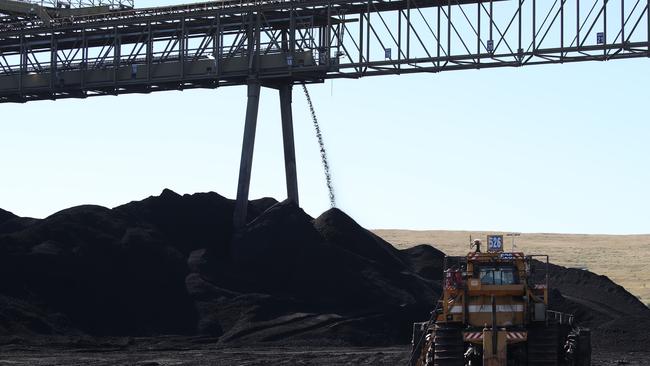No coal in capacity mechanism, confidential sector polling by the Energy Security Board finds
Stakeholder polling by the Energy Security Board reveals concern about including the fossil fuel in a new mechanism meant to ensure continued supply of electricity.

Major energy players are concerned over the prospect of coal being included in a mechanism to guarantee future capacity, with internal polling during a stakeholder meeting showing greater support for incentivising new generation rather than including the fossil fuel in the power market fix.
Coal, gas and hydro plants could be among generation types paid to be available when needed under a proposed capacity mechanism rather than being paid on an “energy only’’ basis for the power used by consumers.
Clean energy developers have previously savaged plans recommended by the Energy Security Board, worried the capacity plan will have a “chilling effect” on renewables companies investing in new supply.
With the ESB expected to release an issues paper on the mechanism shortly, polling from an April meeting held by the energy body with technical experts from the industry showed strongest support for three models that did not include coal in the mix.
Sources said an enhanced energy only market and two models proposed by clean energy producers Iberdrola and Flow Power were voted as the favoured options by an industry group that included those two companies along with Tesla, the Clean Energy Investor Group, AGL Energy, EnergyAustralia, Alcoa, Brickworks and Alinta.
The CEIG, whose members control $24bn of energy generation across 70 power stations, said the mechanism should focus on incentivising new dispatchable generation rather than propping up existing fuels. “The key issue is to ensure that there is not we do not end up with a proposal where coal and gas generators are paid to be available - and continue to receive those payments even when they‘re not available,” CEIG chief executive Simon Corbell said.
“That is a very big concern commonly held across the sector.”
Energy ministers agreed on June 8 to accelerate the final design of a capacity mechanism, which is expected to guarantee investment in baseload gas, pumped hydro, batteries, coal and renewables generation by requiring energy retailers to lock-in supply contracts with power companies in advance, boosting grid security.
While including coal in the mechanism remains a point of tension with some energy ministers, the ESB said it would be included as an option.
Individual states and territories will decide whether to exclude coal and gas power from a temporary capacity mechanism, designed to secure enough baseload generation until the transition to renewables and storage is complete.
The current state of the market showed the unreliability of coal and there was no justification for including the fossil fuel in the mechanism, according to consultancy Nexa Advisory.
“Any capacity market should be designed to incentivise new generation rather than prop up unreliable ageing plants. A well-designed mechanism would also reward flexible generation types, especially storage such as batteries or pumped hydro. This would certainly help address the looming issues of sudden coal power closure we face in the national electricity market over the next decade,” Nexa principal Stephanie Bashir said. “A capacity market that supports fossil fuels, especially coal and gas, makes no sense given that a large cause of the current problem is high gas and coal prices and ongoing coal plant outages.”
Alinta has said it was essential both coal and gas were included in the mechanism, which will put incentives in place to stop the early closure of power plants and create long-term signals for investment in dispatchable generation.
The ESB brief from federal, state and territory ministers is that the mechanism should not conflict with renewables targets.




